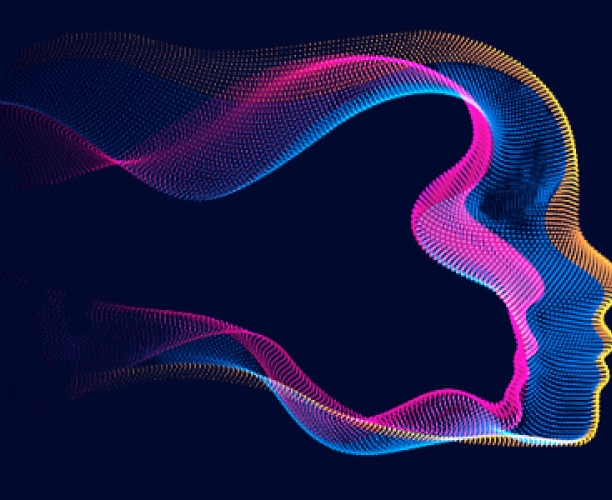

Data Dive: Fake news in the age of AI
Telling fact from fiction is harder than ever.
In the Age of AI, it’s pretty easy to get duped by a deepfake video or text written by ChatGPT.
Artificial intelligence has made telling what’s real from what’s AI-generated difficult and many are feeling nervous about the nascent technology and how it will be used by humans.
AI aside, adults around the world are already pretty skeptical of a range of companies, professions and institutions these days.
“People do not trust politicians and the media that much to begin with,” says Shunichi Uchida, CEO of Ipsos Japan.
Indeed, the new edition of Ipsos’ Global Trustworthiness Monitor finds an abysmal 14%, on average across 31 countries, think politicians generally are trustworthy and just 25% think journalists are trustworthy.
Whether the increasing use of emerging tech will send trust levels even lower in the years ahead remains to be seen.
What we’ve seen already is when seismic events happen, from former U.S. President Donald Trump claiming the 2020 presidential election was stolen to the invasion of Ukraine in 2022 to the Israel-Hamas war this month, misinformation and deepfakes spread like wildfire online.
Below, we look at how people across 29 countries are feeling about fake news, lying and misinformation in these tense times.
On the other hand, two in three are sure they can discern facts from fictions.
The majority in 27 of 29 countries say think they can sniff out the Real McCoy.
South Korea (45%) and Japan (34%) are the only countries where less than half agree with the statement: “I am confident that I can tell real news from fake news.” Uchida says being humble is “a major characteristic of Japanese culture” so that may account for the lack of confidence. Perhaps some of us should be eating a bit of humble pie as Uchida bluntly points out many “people do not have skills/ways of finding out what’s fake or not.”
- Will the real politician please stand up?
Former U.S President Trump takes credit for a lot of things, including popularizing the term “fake news.”Planting the seed that mainstream news outlets were purposefully and constantly lying likely helped the ex-reality TV star win the presidency in 2016.
Given the political climate under Trump it’s little surprise that in 2018, just over two in three (69%) of Americans said there was more lying and misuse of facts in politics and media in the U.S. than there was 30 years ago.
Belief there’s more lying/misuse of facts has dropped five percentage points to 64% in 2023 under U.S. President Joe Biden, but is still higher than in other G7 countries. In comparison, 59% of Britons currently think there’s more lying/misuse of facts in politics/media in their country in 2023 versus 1993, followed by 56% of Canadians, 55% of French people, 53% of Germans, 44% of Italians and 35% of Japanese people.
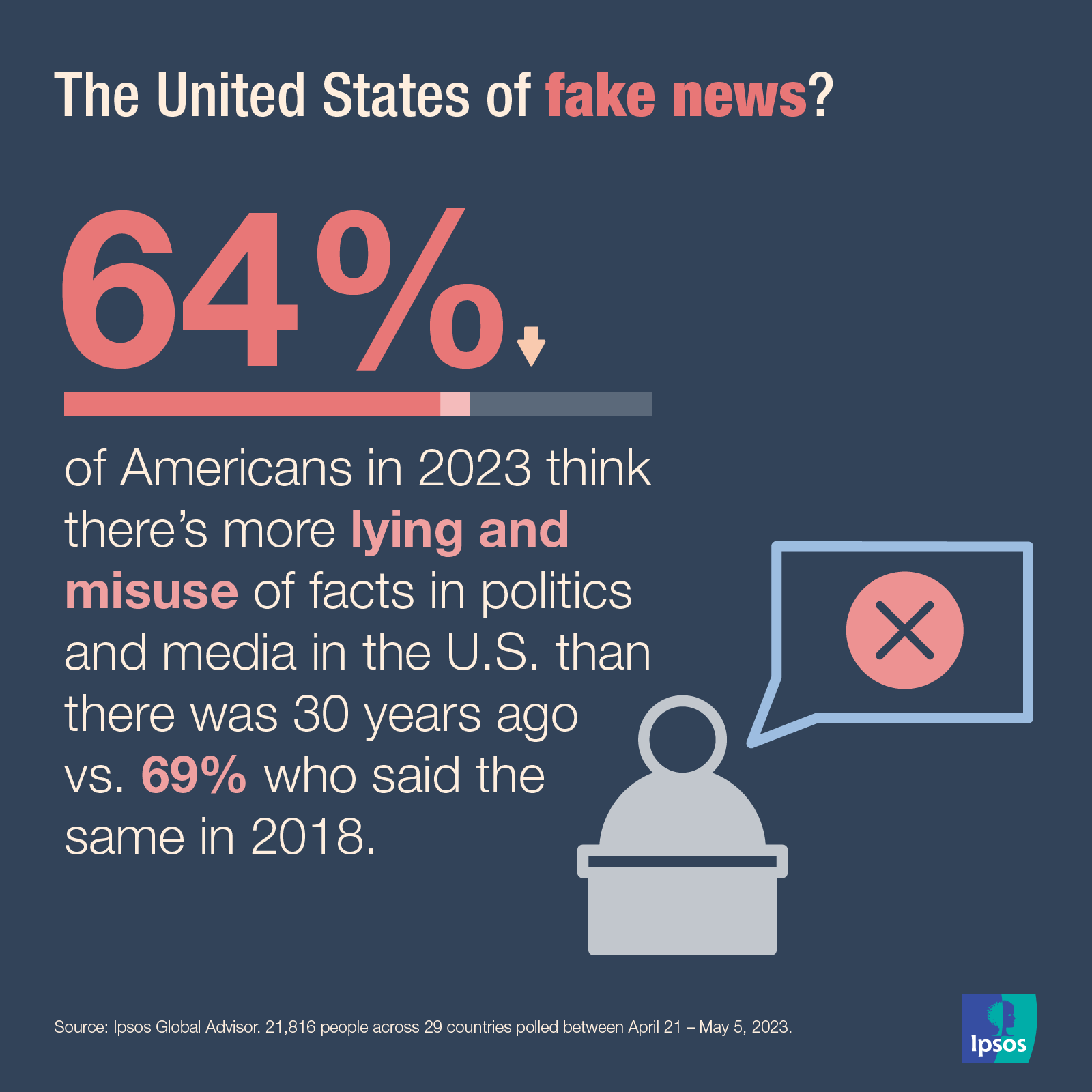
- Fake news knows no borders
America’s neighbors to the North are anxious AI will make a bad situation worse.
Out of 29 countries, Canadians are the most worried with 64% feeling concerned AI will make misinformation worse vs. 56% of Americans who say the same.
“Canadians have seen a decline in the number of local media and news outlets. They do not feel that our governments are up to the task of managing increasingly complicated issues. And their views toward tech and science are fairly utilitarian — they support it but also want to control it,” says Mike Colledge, President of Public Affairs for Ipsos Canada.
“I suspect they see online information as beyond their control and do not feel that there are sufficient checks and balances due to the decline in media outlets and what they consider to be ineffective governments. It’s a perfect storm that leaves them feeling very vulnerable.”
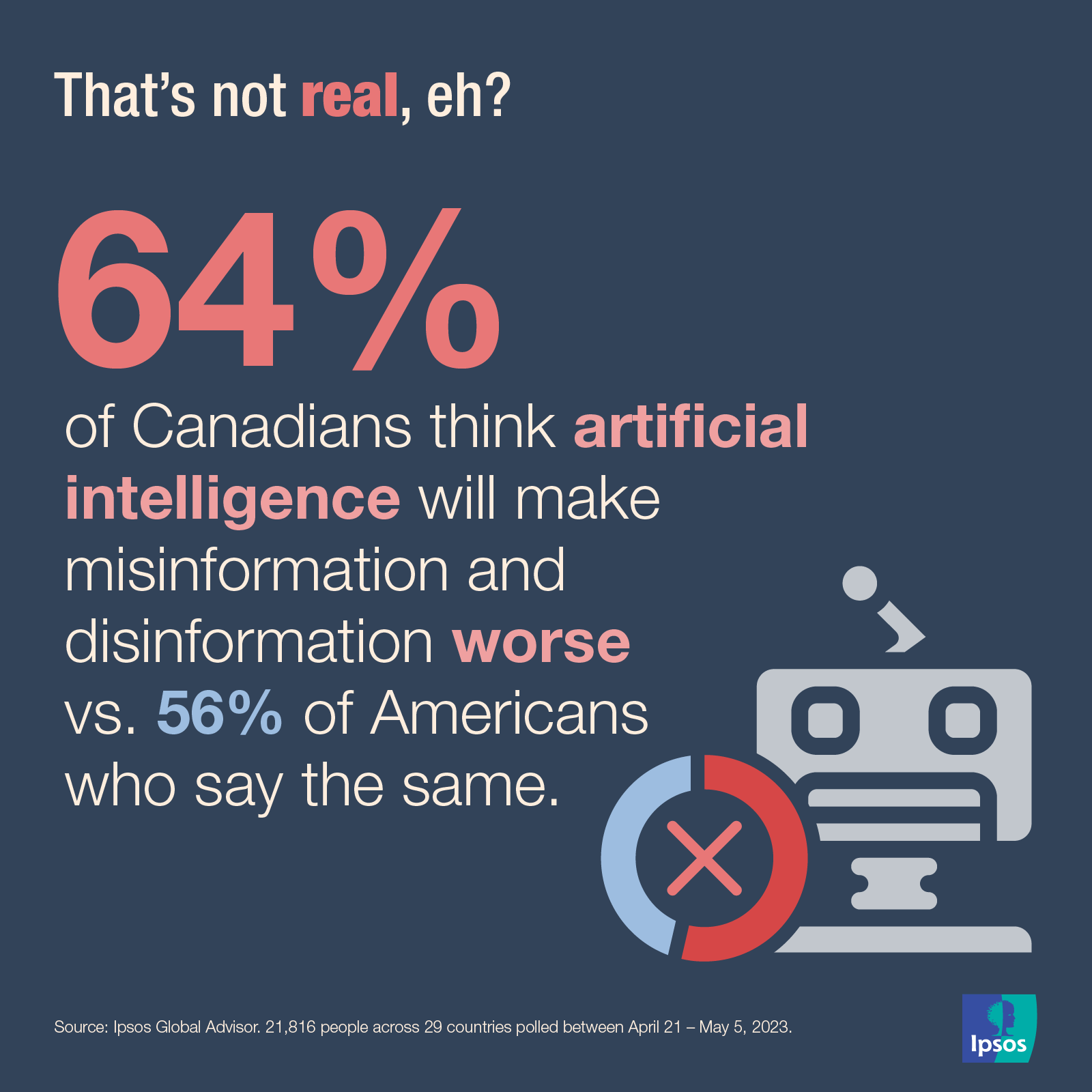
- Realistic fakes
While people in some countries are significantly more worried than others about whether AI will make misinformation worse, a strong majority (ranging from 64% in Germany to 89% in Indonesia) globally agree AI is making it easier to generate very realistic fake news stories and images.
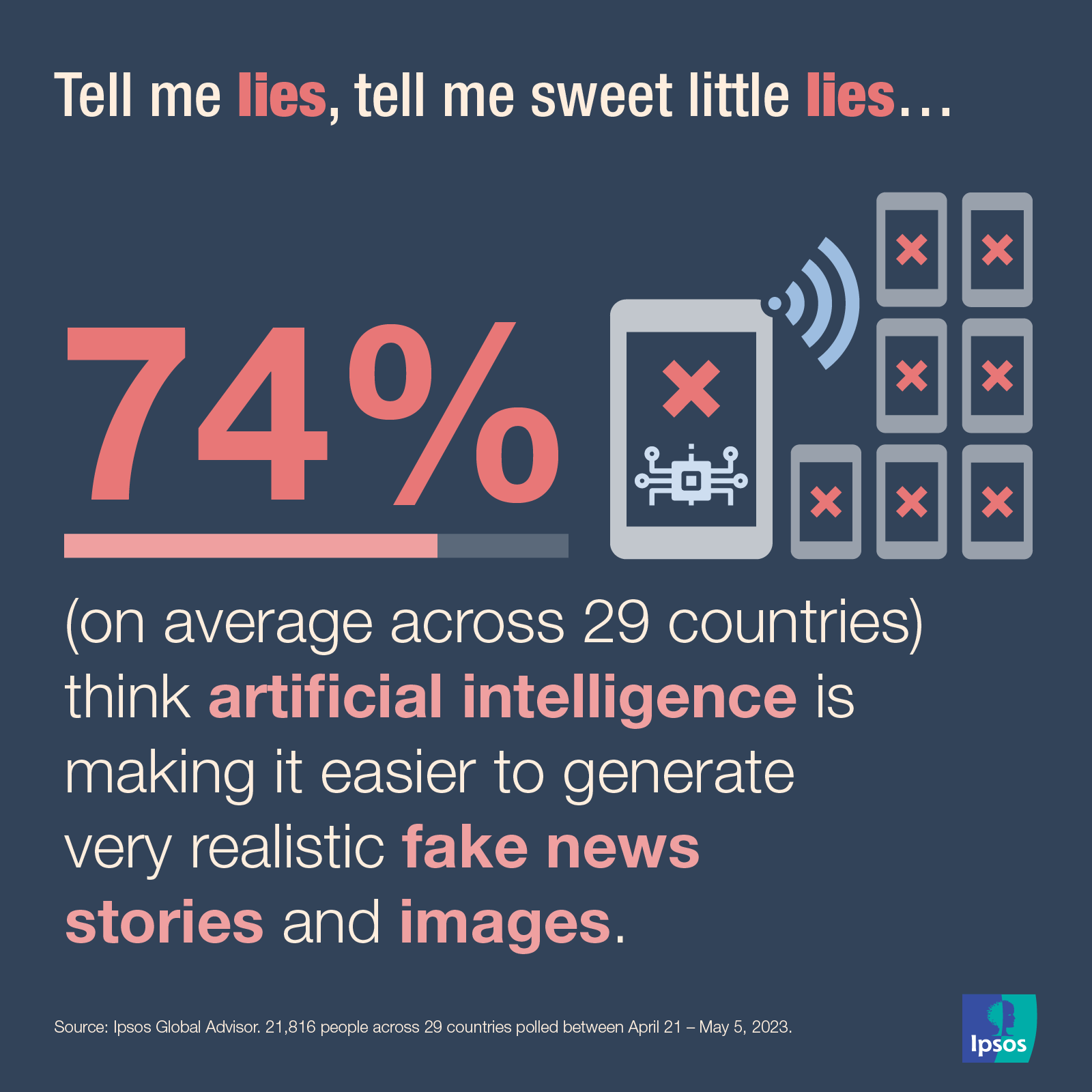
- Reality in an unreal world
There’s a constant stream of information flowing across all of our smartphone screens all day, every day.
And many aren’t sure others can discern what’s trash and what’s treasure as less than half are confident the average person in their country can tell the difference between real and fake news.
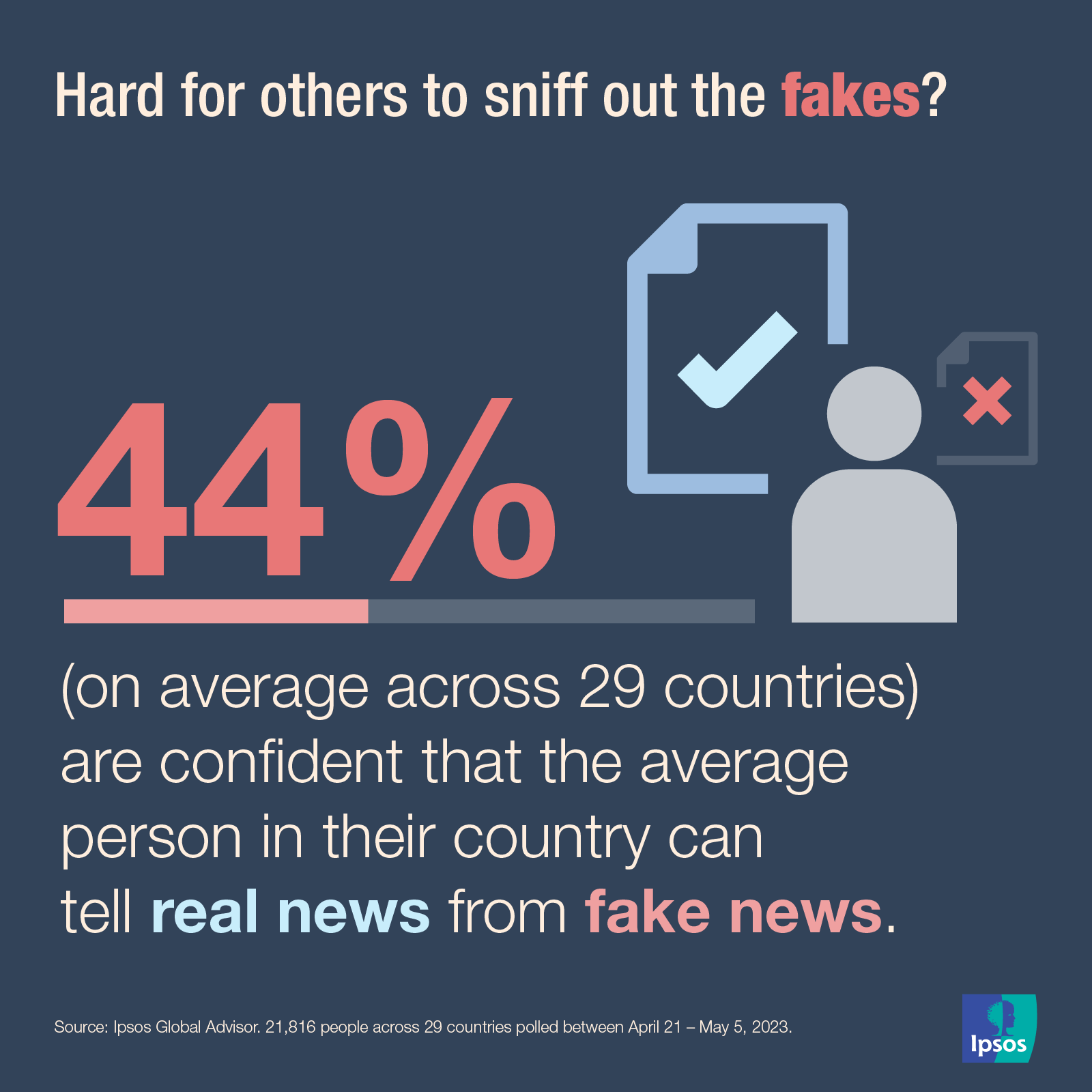
- I'm no fool!
On the other hand, two in three are sure they can discern facts from fictions.
The majority in 27 of 29 countries say think they can sniff out the Real McCoy.
South Korea (45%) and Japan (34%) are the only countries where less than half agree with the statement: “I am confident that I can tell real news from fake news.”
Uchida says being humble is “a major characteristic of Japanese culture” so that may account for the lack of confidence.
Perhaps some of us should be eating a bit of humble pie as Uchida bluntly points out many “people do not have skills/ways of finding out what’s fake or not.”
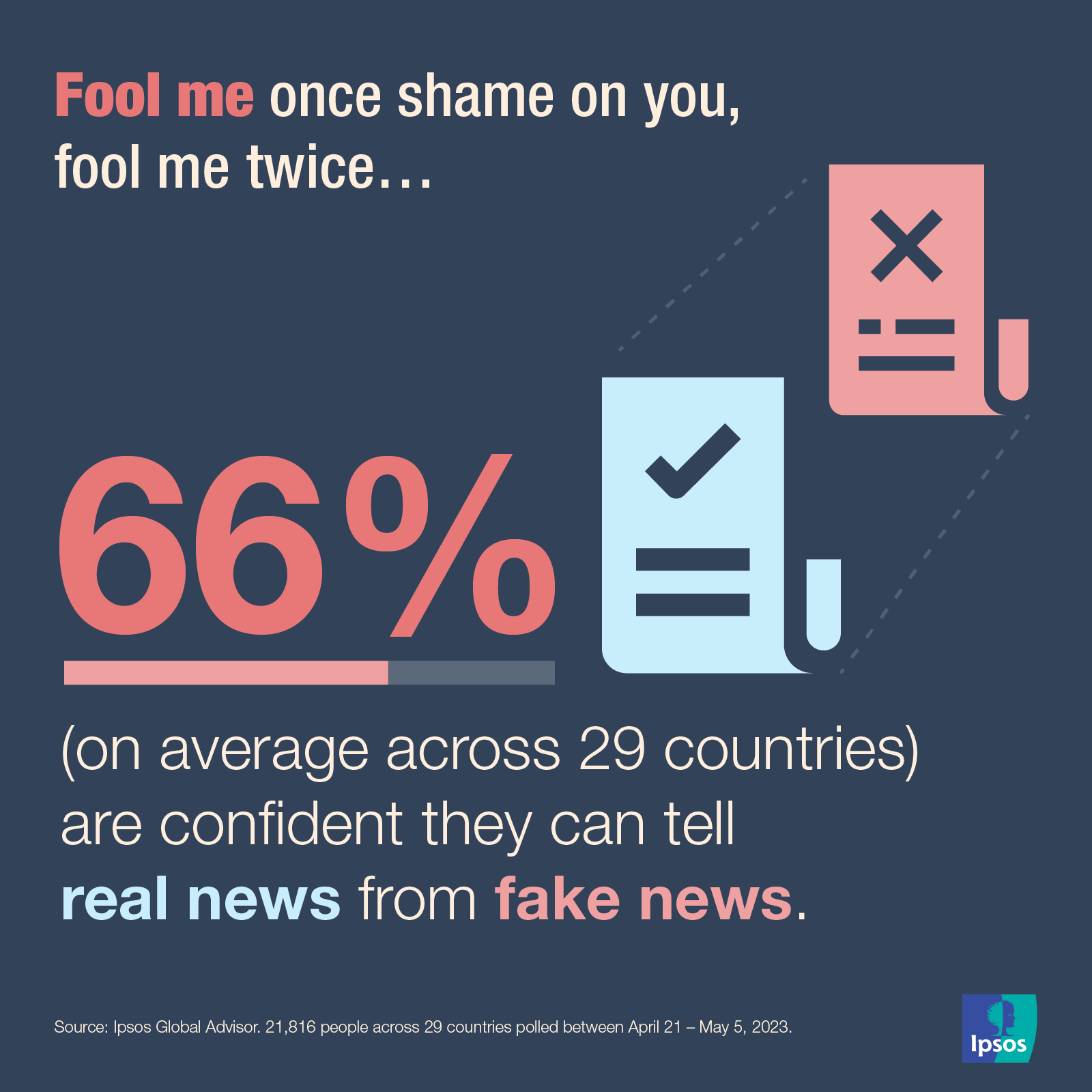
About this study
These are the findings of a 29-country Ipsos survey conducted on Ipsos’s Global Advisor online survey platform and, in India, on its hybrid IndiaBus, April 21 – May 5, 2023, among 21,816 adults aged 18 and older in India, 18-74 in Canada, the Republic of Ireland, Malaysia, New Zealand, South Africa, Turkey, and the United States, 20-74 in Thailand, 21-74 in Indonesia and Singapore, and 16-74 in 20 other countries.



